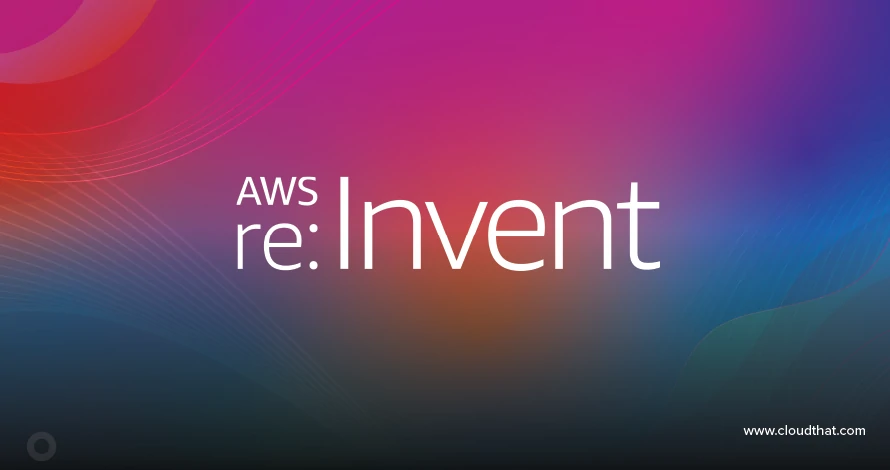|
Voiced by Amazon Polly |
Ditch the Delays, Embrace the Speed: Why uv can be your New Favorite Python Package Manager
For Python developers, managing dependencies is a fundamental yet often frustrating part of the workflow. We’ve all been there – staring at a terminal for what feels like an eternity as pip churns through packages, resolving conflicts, and downloading wheels. The dream is a seamless, lightning-fast experience, allowing us to focus on building amazing applications rather than wrestling with package installations.
Enter uv, a new kid on the block that promises to revolutionize how we handle Python packages. Developed by Astral, the team behind the blazing-fast Ruff linter, uv aims to be a drop-in replacement for pip and pip-tools, offering significant performance improvements and a smoother overall experience. If you’re tired of the wait and yearning for a hassle-free way to manage your Python dependencies, it’s time to take a closer look at uv.
Freedom Month Sale — Upgrade Your Skills, Save Big!
- Up to 80% OFF AWS Courses
- Up to 30% OFF Microsoft Certs
- Ends August 31
The Pain Points of Traditional Python Package Management
Before diving into the wonders of uv, let’s acknowledge the common frustrations developers face with existing tools:
- Slow Installation Times: Pip, while the standard, can be notoriously slow, especially in projects with a large number of dependencies or complex dependency trees. This waiting time can significantly impact productivity.
- Complex Dependency Resolution: Managing conflicting dependencies and ensuring a consistent environment across different machines can be a headache. Pip’s resolver, while improving, can still struggle with intricate scenarios.
- Verbose Output: Sifting through pages of pip’s output to find relevant information can be tedious.
- Separate Tools for Requirements Files: The need to use pip-tools to manage requirements.txt files adds an extra layer of complexity to the workflow.

These pain points often lead to wasted time, environment inconsistencies, and unnecessary frustration. uv steps in to address these challenges head-on.
uv: Speed and Simplicity Redefined
uv isn’t just a marginal improvement; it’s a significant leap forward in Python package management. Here’s what makes it stand out:
- Blazing-Fast Performance: Built with Rust, uv leverages the language’s speed and efficiency to dramatically accelerate package installation and dependency resolution. Early benchmarks show uv can be significantly faster than pip in many scenarios, sometimes by an order of magnitude. This means less waiting and more coding.
- Drop-in Replacement: One of the most appealing aspects of uv is its ambition to be a drop-in replacement for pip and pip-tools. This means you can likely replace your pip and pip-compile commands with uv equivalents with minimal changes to your existing workflows.
- Comprehensive Functionality: uv aims to provide a complete solution for package management, including:
- Installing packages from PyPI.
- Generating and updating requirements.txt files.
- Managing virtual environments .
- Handling package upgrades and uninstalls.
- Improved Error Handling and Output: uv strives to provide more informative and concise output, making it easier to understand what’s happening during package operations and diagnose any issues.
- Modern Architecture: Leveraging Rust’s capabilities allows for better concurrency and resource utilization, contributing to its speed and efficiency.
Getting Started with uv
Trying out uv is straightforward. You can install it using the OS package Manager or pip:
On Linux and Mac
|

On Windows
|

Once installed, you can start using uv in place of pip for common operations:
Installing packages:
|
Upgrading packages:
|
Uninstalling packages:
|
Generating requirements.txt:
|
Updating dependencies in requirements.txt:
|
As you can see, the commands are very similar to pip and pip-compile, making the transition relatively seamless.
Package management like npm
If you have been a javascript developer, you would be quite familiar with the tool called npm- node package manager. If you are new to python, you might be wondering how to do the package management locally or globally. Creating virtual environment and every time activating it is the regular workflow we follow. But if we are not aware that a project uses this flow, we might forget to activate & use it in the system leading us to installing packages in system-wide installation.
We will look at new way of working with projects, to create a new project called app1
|

For creating a packaged application, use
|

This creates the necessary files
- py : The entry file for the project
- toml: The metadata of the project with the dependencies.


It also initializes the project with git version control. To add the dependencies to the project, we can edit the pyproject.toml or use the commands like add, remove to manage the packages which would be the recommended way.
| uv add ‘<package>==<version>’ |

We can also add multiple packages using a requirements.txt file as before
| uv add -r requirements.txt |
We can also specify alternative sources
| uv add git+https://github.com/psf/requests |
The uv run command can be used to execute scripts in the project environment
| uv run main.py |
We can build the distributions of our project
| uv build ls dist/ |
It places the distribution in the dist folder


The Benefits in Practice
Imagine a scenario where you’re setting up a new project with dozens of dependencies, including data science libraries like NumPy, Pandas, and scikit-learn. With traditional pip, this initial setup could take a significant amount of time. Switching to uv could potentially reduce this waiting period dramatically, allowing you to start coding much sooner.
Similarly, in continuous integration/continuous deployment (CI/CD) pipelines, where build times are critical, the speed improvements offered by uv can lead to faster feedback loops and more efficient deployments.
Furthermore, for developers who frequently create and manage virtual environments, the integrated functionality (once fully developed) promises a more streamlined and less error-prone process.
The Future of uv
While uv is still relatively new, its rapid development and the backing of the Astral team suggest a bright future. Ongoing efforts are focused on:
- Completing Feature Parity: Ensuring uv supports all the essential features of pip and pip-tools.
- Improving Virtual Environment Management: Fully integrating virtual environment creation and activation.
- Enhancing Error Reporting: Providing even clearer and more helpful error messages.
- Community Adoption: Encouraging wider adoption and gathering feedback from the Python developer community.
Conclusion: Embrace the Speed, Embrace uv
In the world of software development, time is a precious commodity. uv offers a compelling solution to one of the most time-consuming aspects of Python development: package management. Its promise of blazing-fast performance, drop-in compatibility, and comprehensive functionality makes it an exciting tool for both individual developers and larger teams.
If you’re looking to streamline your Python development workflow, reduce waiting times, and enjoy a more hassle-free experience with dependencies, it’s definitely worth giving uv a try. It might just become your new favorite Python package manager, allowing you to spend less time managing packages and more time building the amazing things you’re passionate about. The future of Python package management looks fast, and it looks like it might be driven by uv.
Freedom Month Sale — Discounts That Set You Free!
- Up to 80% OFF AWS Courses
- Up to 30% OFF Microsoft Certs
- Ends August 31
About CloudThat
CloudThat is an award-winning company and the first in India to offer cloud training and consulting services worldwide. As a Microsoft Solutions Partner, AWS Advanced Tier Training Partner, and Google Cloud Platform Partner, CloudThat has empowered over 850,000 professionals through 600+ cloud certifications winning global recognition for its training excellence including 20 MCT Trainers in Microsoft’s Global Top 100 and an impressive 12 awards in the last 8 years. CloudThat specializes in Cloud Migration, Data Platforms, DevOps, IoT, and cutting-edge technologies like Gen AI & AI/ML. It has delivered over 500 consulting projects for 250+ organizations in 30+ countries as it continues to empower professionals and enterprises to thrive in the digital-first world.

WRITTEN BY Vishwas K Singh
Vishwas K Singh is a Subject Matter Expert - FSD, Cloud at CloudThat, specializing in Full Stack Domain. With 10+ years of experience in FSD, he has helped over 7000+ professionals/students to upskill in Backend, Frontend, Databases & Fullstack. Known for simplifying complex concepts, hands-on teaching and industry insights, he brings deep technical knowledge and practical application into every learning experience. Vishwas's passion for technology & teaching reflects in his unique approach to learning and development.


 Login
Login


 May 22, 2025
May 22, 2025 PREV
PREV











Comments